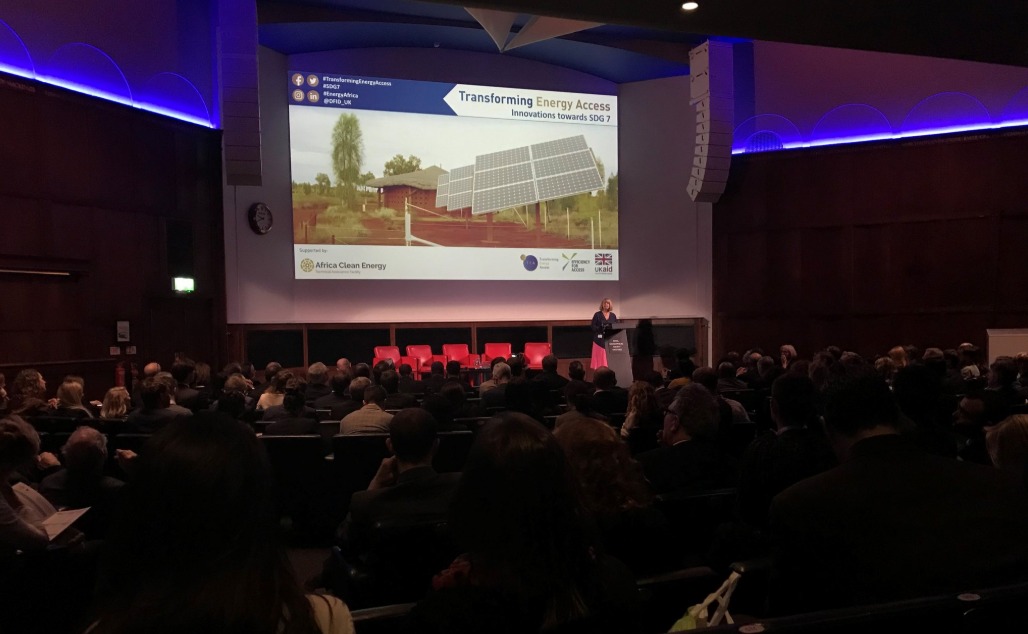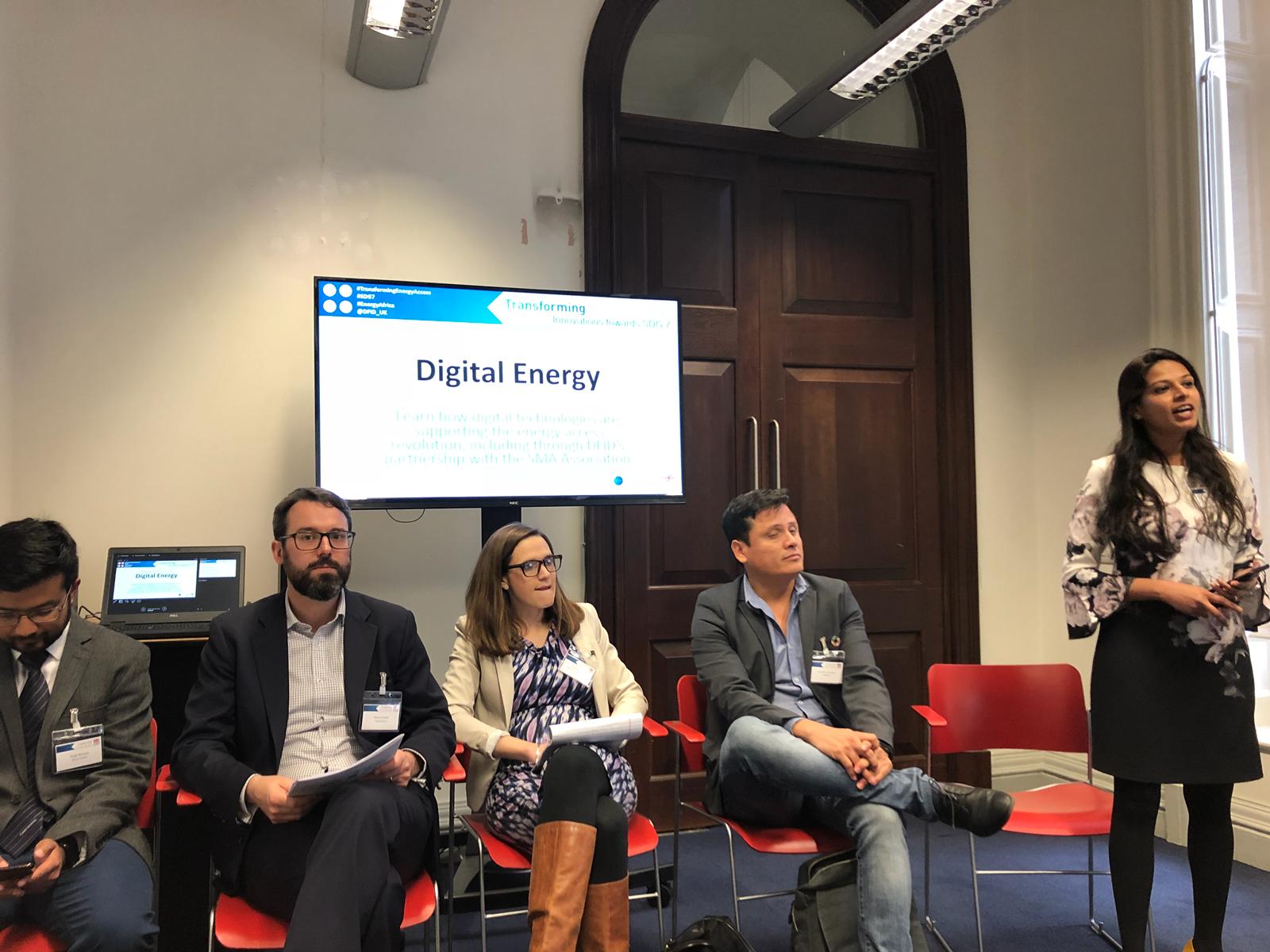This blog post has been co-authored with Nicolas Snel, Senior Insights Manager, Mobile for Development Utilities.
On 7 March 2019, the GSMA Mobile for Development (M4D) Utilities team was invited to participate in the conference, ‘Transforming Energy Access: Innovations towards SDG 7’, led by the UK Department for International Development. The event was opened by the Hon. Minister of State at the Department for International Development, Ms. Harriet Baldwin and was attended by policymakers, investors, programme managers, energy innovators and entrepreneurs active in enabling clean energy access in Africa. We wanted to share some of our takeaways from the event.
Achieving SDG 7 will need an integrated systems approach involving the broader ecosystem
A resonating sound through the sessions was that there is a clear need for both off and on-grid solutions to achieve SDG 7. A session on ‘Unlocking mini grids’ discussed that off-grid solution providers need to work hand in hand with mini-grids and on-grid energy systems. Beyond this, some stakeholders called on governments to focus on taking country-specific integrated approaches while planning national energy access programmes.
The need to build a strong ecosystem of low-energy appliances that are suited particularly to those using off-grid and weak grid energy sources was also emphasised in a few sessions. Azuri, a pay-as-you-go (PAYG) solar provider, talked about how they are using software with artificial intelligence to learn each home’s energy needs and adjust power output to keep things running. FuturePump, an affordable solar irrigation pump manufacturer, spoke about the importance of testing the hardware in the field as a lot of the solutions are developed in the labs and fail to survive when put to test on the ground.
Digitising energy – the value of IoT and mobile money
The M4D utilities team had the opportunity to lead a session on the topic ‘Digital Energy: how digital technology is supporting the energy access revolution’, where Senior Insights Manager, Akanksha Sharma, shared some of the learnings from our M4D Utilities programme journey since 2012. To date, our programme has supported 33 organisations in the energy sector alone. Starting with some PAYG solar companies that are now leaders in the industry – M-Kopa, Lumos, PEG, Fenix International and Mobisol, the programme has supported replication of PAYG technology to other sectors and geographies outside East Africa, but also trialed some on-grid solutions relying on digital payments and smart-metering. Find out more on this journey in our latest annual report – Intelligent Utilities for All.
Three of the organisations we have been supporting – KopaGas, SunCulture and Gham Power, together with Odyssey Energy were part of the panel to share their experiences in integrating mobile technology in their solutions. KopaGas talked about how their technology enables their customers to pre-pay as little as $0.3 per day for all their cooking gas needs via mobile money. SunCulture talked about how through a range of offerings including solar water pumps, soil sensors, drip irrigation kits, they are offering a full suite of IoT solutions affordably for agriculture in Kenya.
Local financing and local skills are urgently needed
In his keynote speech, Amadou Hott, the African Development Bank Vice President – Power, Energy, Climate and Green Growth, said that while the technology is now proven, the challenge remains to find ways to scale by leveraging money in local currencies (whilst eliminating foreign exchange risks). Directly related to this issue, building local capacity is another concern of great importance. There is not enough focus today in the industry around transferring skills to local populations. Racheal Kyte, from Sustainable Energy for All, emphasised the need to move from selling technology to the Africans to making sure the consumers are enabled to participate in building their own economies.
We would like to end this blog by thanking the UK Department of International Development and the Transforming Energy Access (TEA) and Low Energy Inclusive Appliances (LEIA) programmes for inviting us to take part in this event.
The GSMA Mobile for Development (M4D) Utilities programme is funded by the UK Department for International Development (DFID), USAID as part of its commitment to Scaling Off-Grid Energy Grand Challenge for Development and supported by the GSMA and its members.




